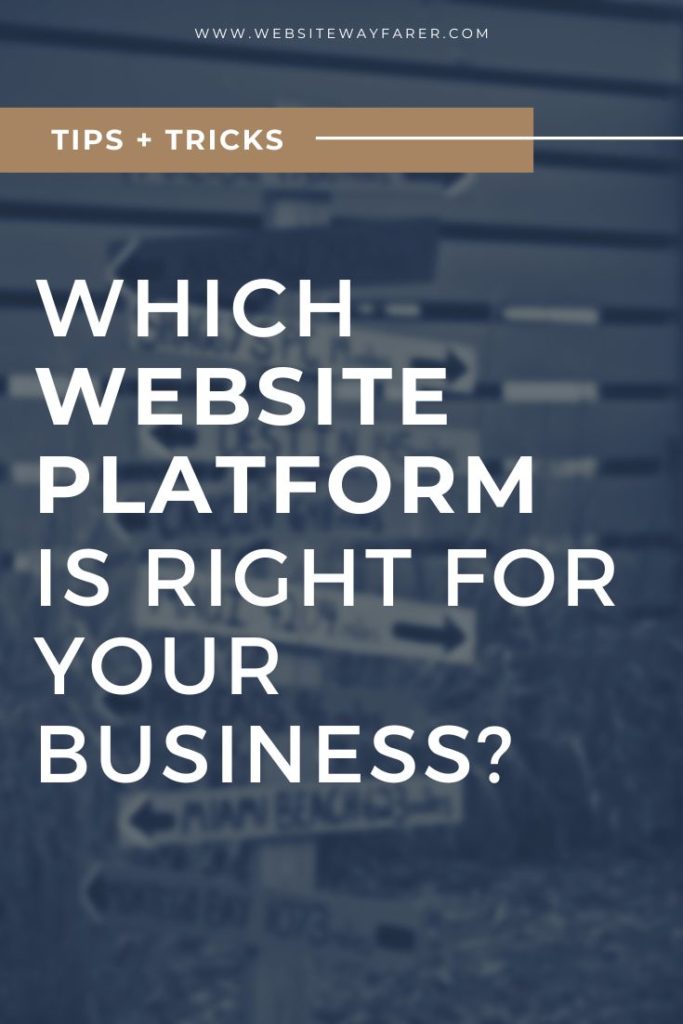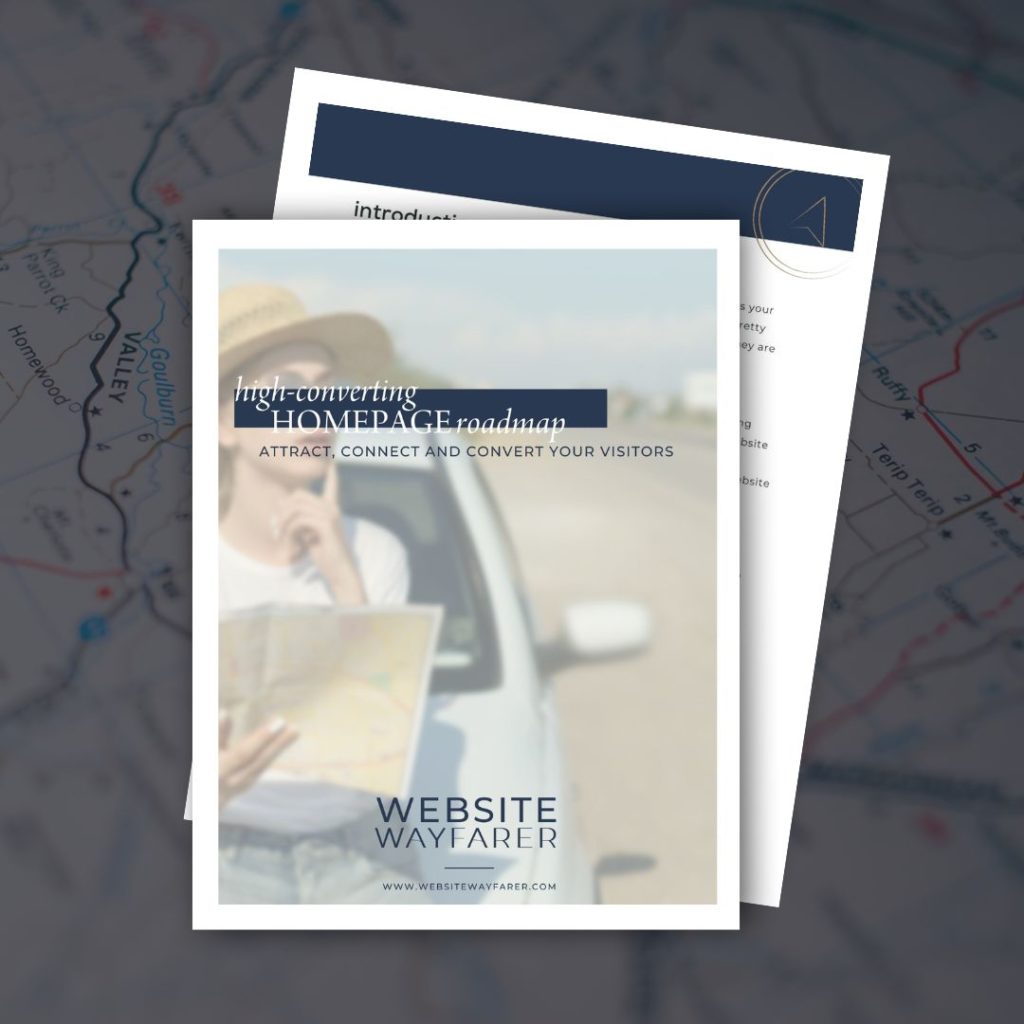Is building or redesigning your website at the top of your to-do list for the upcoming year? There are a number of different platforms available to build a website (also referred to as content management systems) available, so how can you know which one is right for your business? In this article, we’ll help you decide which platform is best based on your business needs.

WHAT IS A WEBSITE PLATFORM?
First, you might be wondering what exactly a website platform, or content management system, is. A website platform, also known as a Content Management System (CMS), is a digital platform used to create and manage websites. It usually provides tools to help users create and maintain a website, such as templates, plugins, and content creation, even with limited experience of knowledge of code or web design.
There are a number of different website platforms on the market, each one with its own unique interface and capabilities. A few popular platforms among entrepreneurs include WordPress, Squarespace, Shopify and Showit.
A website built on a website platform, as opposed to a social media account, provides credibility for your business and gives you complete control over the design and content you offer. Leading website builders like Squarespace, WordPress and Shopify are constantly making improvements that help streamline the process of building and launching a website for everyday entrepreneurs with drop-and-drop features and easy editing capabilities.
Grab Our Free Guide to the 5 Pages Every Website Must Have
With so many options on the market, it can be overwhelming and confusing to choose which platform is going to work best for your business. At the highest level, you want to ensure your site will look and perform at an optimal level, however, there are a number of factors to consider when choosing the right content management system for you.
Choosing the best website platform for your needs can be a daunting task, but it doesn’t have to be. Here are some tips to help you get started:
What to Look For
Before looking at the various options available, we recommend writing down all the features you would like to have on your site, as well as your short- and long-term website goals. Do you want to have a blog? Are you looking for a website that can grow and expand as you scale your business? Do you need an e-commerce component?
These are all important considerations as you decide which website platform is right for your business since you want to be sure that your site can continue to grow alongside your business for years to come.
Take into account these features and considerations when choosing your content management system:
Features + Functionality
Determine what type of content you want to create: Do you want to build a personal blog, an online store, or a portfolio website? Knowing the type of content you want to create will help you narrow down which website platform is best for you.
In addition, what do you want your website to DO? Will you need e-commerce or to sell services directly and take payments on-site? Slideshows? Videos? An events calendar? Think about all the interactive functions you want from your website, both now and in the future, and write them down.
Research the features: Make sure the website platform you choose has the features that you’ve identified will best serve your needs. Will you need any features that require custom development, ie. a custom client portal, a specialized internal system, or something that wouldn’t typically be available in an out-of-the-box system? Some platforms offer add-ons and complete custom development while others are WYSIWYG (what you see is what you get).
Ease of Use
Consider ease of use: Some website platforms are more user-friendly than others, so consider how comfortable you are with technology and choose a platform that fits your level of expertise and comfort with tech.
Are you pretty tech-savvy and can google a solution with the best of them? Does the sheer thought of seeing </> send you crawling under your desk? Take into account just HOW easy you need your platform to be. But keep in mind that ease of use can sometimes inhibit the level of features and functionality, so it is a balancing game. If you want a super advanced website, you’re going to need an advanced platform that may not be quite as DIY-friendly.
Cost
Check the pricing: Many website platforms offer free plans, but if you’re looking for more features, you may need to pay for a premium plan or add-ons which can add up. Make sure the platform you choose fits your budget. Is cost a factor in deciding which platform you will ultimately go with? While there are straightforward costs of website fees and hosting, there can be hidden fees as well. Like when you discover you can’t make a simple change and need to call a developer for help. Again, weigh your costs with your needs and functionality. You can’t drive a Bentley if you only have the money for a Honda (and there’s nothing wrong with that!), so be real with yourself and have a budget in mind.
Design + Customization
Think about the design: Do you need a template to create a website quickly, or do you want to customize it with your own design elements? Different website platforms offer different design options, so think about what kind of overall design you want for your website and how much you want to customize it yourself vs. using a template design as it comes.
Scalability
What is the five-year plan for your business? How do you plan on scaling it? Your website should be able to scale alongside your business instead of requiring you to rebuild on a new platform every year or two because the one you chose can’t accomplish your future business goals. The life of a good website is generally 3-5 years, so think about how your website can evolve along with your business goals.
Maintenance
Who will maintain your site and make regular updates? Do you want to pay for ongoing maintenance or do you intend on doing it yourself? Is there a person on your team to whom you can delegate website management? Whoever is responsible for your website maintenance post-launch should be trained on the ins and outs of managing the website, and if you aren’t paying for a company to maintain or manage your site, you need to be able to train your internal designees to take on these responsibilities down the road.
Now that you’ve addressed all of your website platform considerations, get out there and explore which one might be right for your business. Sign up for a trial run of your chosen platform (most offer a limited free trial) and get a feel for the platform before investing and you’ll feel more confident prior to moving forward with your website design. By following these tips, you should be able to find the best website platform for your needs.




